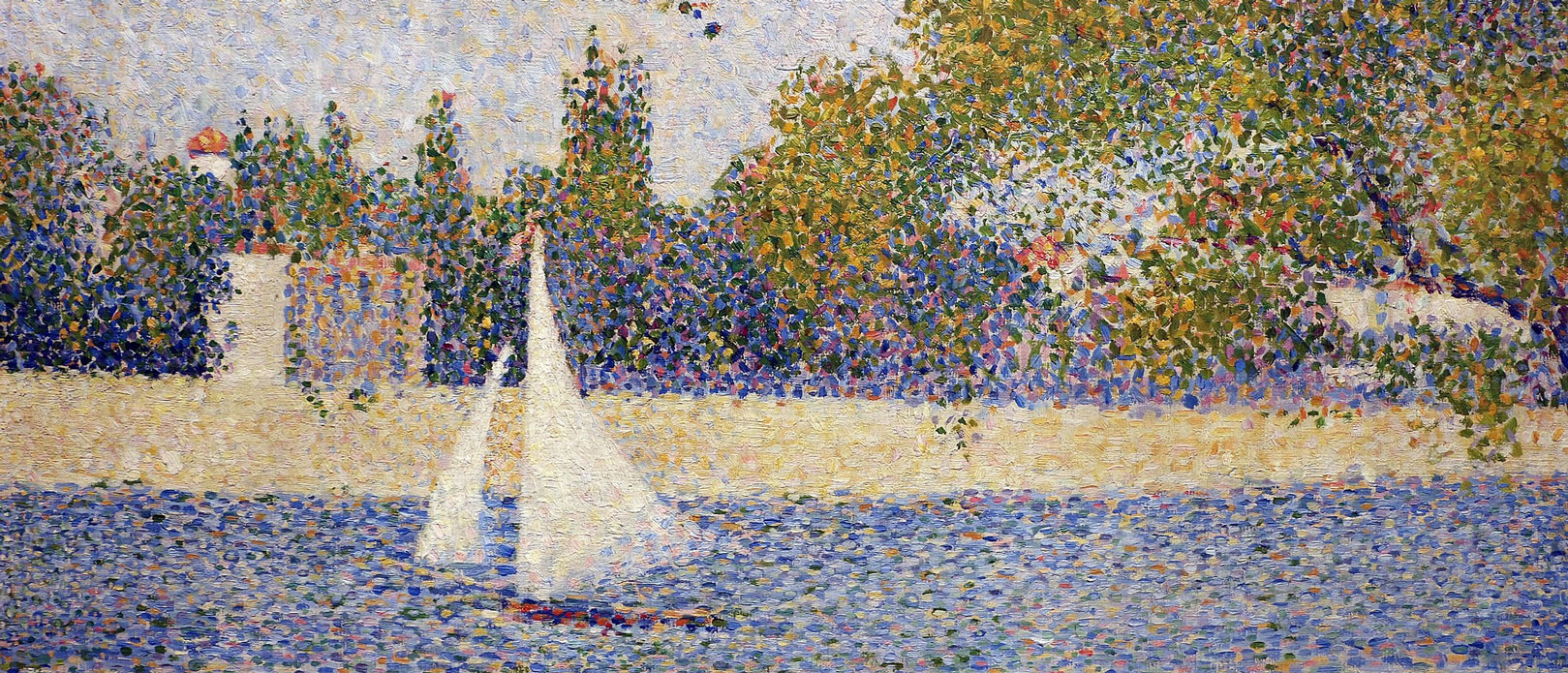Bildtext får vara max två rader text. Hela texten ska högerjusteras om den bara ska innehålla fotobyline! Photo: B. Christensen/Azote
APPLYING RESEARCH
Why getting the big picture roughly right is more important than focusing on details

Just like looking at one of Georges Seurat’s paintings, researchers of today may need to take a step back to get the bigger picture. Too much focus on “getting each dot right” can affect decision-making. Photo: Georges seurat, la senna alla grande-jatte, 1888/Wikimedia Commons
- Scientists and policy makers facing complex global change issues are often tempted to focus on smaller problems and study them with great details
- This can lead to “uncertainty paralysis” that threatens timely and appropriate decisions surrounding these complex issues
- Four principles for identifying “corridors of clarity” are suggested to help understand these issues sufficiently well to take policy action
Four ways to understand the complexity of global environmental change sufficiently well to take policy action
CORRIDORS OF CLARITY: The French post-Impressionist artist Georges Seurat constructed his paintings using tiny juxtaposed dots of multi-coloured paint. Only by looking at the painting from a distance is it possible to see what it actually represents.
Just like Seurat’s paintings, researchers of today may need to take a step back to get the bigger picture.
They often retreat to “safe science”, focusing on smaller isolated problems, or insisting on collecting more and more data to build increasingly sophisticated models. This is equivalent to “getting each dot right” in an attempt to more rigorously capture reality.
This, however, is a bit like not seeing the forest for all the trees.
More complicated models do not necessarily predict future outcomes better than simpler models.
Anne-Sophie Crépin, co-author
Four principles for clarity
In a study published in BioScience, a group of centre researchers together with colleagues from around the world, analyse how to peer through this “mist of uncertainty” that threatens decisions.
The list of authors includes centre researchers and Beijer Institute colleagues Anne-Sophie Crépin, Oonsie Biggs, Carl Folke, Garry Peterson and Max Troell as well as international leading scholars Stephen Polasky (lead author), Stephen R. Carpenter, Marten Scheffer, Scott Barrett, Gretchen Daily, Paul Ehrlich, Richard B. Howarth, Terry Hughes, Simon A. Levin, Jason F. Shogren, Brian Walker, and Anastasios Xepapadeas.
The authors suggest four general principles for identifying “corridors of clarity” to help understanding these issues sufficiently well to justify taking policy action.
“Although science thrives by gaining ever more nuanced and detailed description of reality, such details may not be that useful to decision-makers,” they write.
The four principles are:
(1) follow the strongest and most direct path between policy decisions on outcomes
(2) focus on finding sufficient evidence for policy purpose
(3) prioritize no-regrets policies by avoiding options with controversial, uncertain, or immeasurable benefits
(4) aim for getting the big picture roughly right rather than focusing on details.
“More complicated models do not necessarily predict future outcomes better than simpler models, and an overload of information can lead to cherry picking facts, greater polarization, and confirmation bias,” they conclude.
Tribute to pioneering colleagues
The study in BioScience is dedicated to late colleagues Kenneth Arrow, pioneering environmental economist Karl-Göran Mäler, and leading climate scientist Stephen Schneider. They all took part in a meeting on the island of Askö in Sweden, which was the starting point of the article.
Polasky, S, Crépin, A-S, Biggs, R., Carpenter, S.R., Folke, C., Peterson, G., et.al. 2020. Corridors of Clarity: Four Principles to Overcome Uncertainty Paralysis in the Anthropocene. BioScience, biaa115, https://doi.org/10.1093/biosci/biaa115
For more information about the publication, contact co-author Anne-Sophie Crépin:









